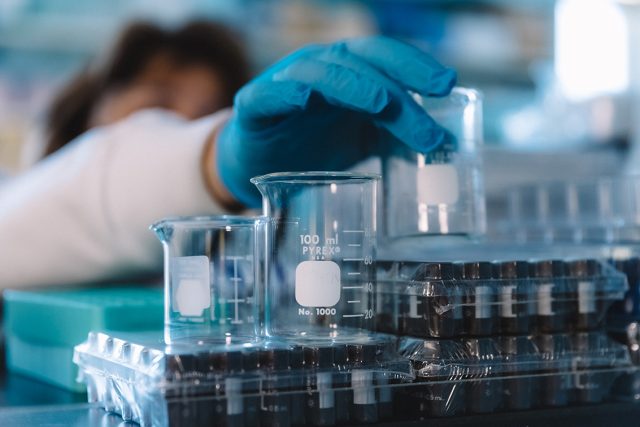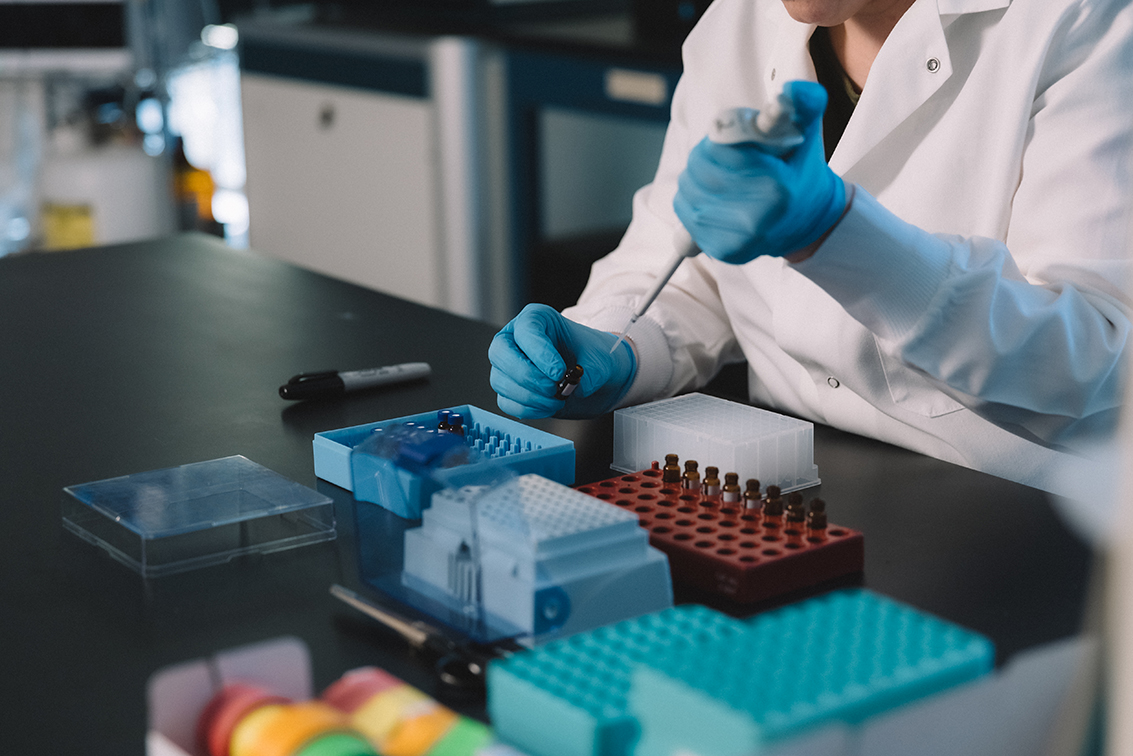
 The U.S. Department of Commerce Economic Development Administration awarded the Birmingham Biotechnology Hub Grant, which is led by Southern Research, funding. (Provided)
The U.S. Department of Commerce Economic Development Administration awarded the Birmingham Biotechnology Hub Grant, which is led by Southern Research, funding. (Provided)By Barnett Wright | The Birmingham Times
A group of biotechnology research companies based in Birmingham has been awarded $44 million in federal funding to advance the state’s biotechnology ecosystem, a “breakthrough” in future growth for the city, said Mayor Randall Woodfin.
The U.S. Department of Commerce Economic Development Administration awarded the Birmingham Biotechnology Hub Grant, which is led by Southern Research, funding to use artificial intelligence to shorten drug development to provide affordable drugs, vaccines, and diagnostics.
Woodfin made the announcement Tuesday during his annual State of the City address before the Kiwanis Club of Birmingham at the downtown Harbert Center.
“Those are game-changing dollars,” he told the Kiwanians. “…on top of the dollars, on top of bringing thousands of jobs over the next decade to the city limits of Birmingham…this will be a breakthrough that can shatter a generational cycle of poverty, produce thousands of jobs, increase our city’s population and grow our city in the way you all want it to be known for.”
 Almost $20 million of the grant will fund Southern Research’s Catalyst program, launched in October 2024 with support from the State of Alabama and City of Birmingham. (Provided)
Almost $20 million of the grant will fund Southern Research’s Catalyst program, launched in October 2024 with support from the State of Alabama and City of Birmingham. (Provided)The funds are being awarded to Southern Research and University of Alabama at Birmingham (UAB) to create artificial intelligence drug discovery platforms and to Alabama Community College Systems, Lawson State Community College, and The PROPEL Center to provide advanced biotechnology training and workforce development.
U.S. Rep. Terri Sewell, D-Birmingham, said the grant was a huge victory for the city of Birmingham and the state of Alabama.
 Rep. Terri Sewell
Rep. Terri Sewell“Not only will it ensure that Birmingham remains a leader in the biotechnology sector, but it will also help us make strides toward greater representation for African Americans and other minority communities in clinical trials,” she said on Tuesday. “Hats off to Southern Research, UAB, and the city of Birmingham for the many years of hard work and collaboration that made this announcement possible.”
Sanjay Singh, Birmingham Bio Innovation Corporation Interim Regional Innovation Officer, said the funding provides a great opportunity “to train Alabamians in the biotech jobs of the future, advance technology and make life-changing and life-saving discoveries. The work of the Birmingham Biotechnology Hub promises to benefit our local and state economies while improving health across Alabama and far beyond,” he said.
The hub was designated as one of the 31 Tech Hubs designated in October 2023 by the Biden administration.
“To out-innovate and out-build the rest of the world, we need to ensure we’re investing in America’s talent and workforce to succeed in a 21st century economy – that’s how America maintains its competitive edge,” U.S. Secretary of Commerce Gina Raimondo said in a statement on Tuesday.
Almost $20 million of the grant will fund Southern Research’s Catalyst program, launched in October 2024 with support from the State of Alabama and City of Birmingham. The initiative seeks to provide patients across Alabama with access to free genetic tests and clinical insights about medications and risks for certain chronic diseases, making the latest health innovations available in rural and underserved communities.
Almost $10 million will go to the UAB Center for Innovation Platforms and Therapeutics to develop advanced AI and biological platforms that speed up drug discovery. Matt Might, Ph.D., director of the Hugh Kaul Precision Medicine Institute, will lead that work.
“Precision medicine — using patients’ unique DNA and individualized biomarkers to provide personalized, more effective medical care — allows us to save and improve lives like never before; it is truly the future of medicine,” Might said. “Using AI will help us reach that future faster — discovering new drugs and identifying new and more precise uses for existing ones — much sooner than we previously thought possible.”
The Lawson State Community College Biotech Early Career Workforce Development Program was awarded $7.26 million, and The PROPEL Center— a technology and innovation hub that supports HBCUs — has been awarded $5 million to support its Biotech Advanced Upskilling Project.

 1 week ago
1
1 week ago
1









 English (US)
English (US)